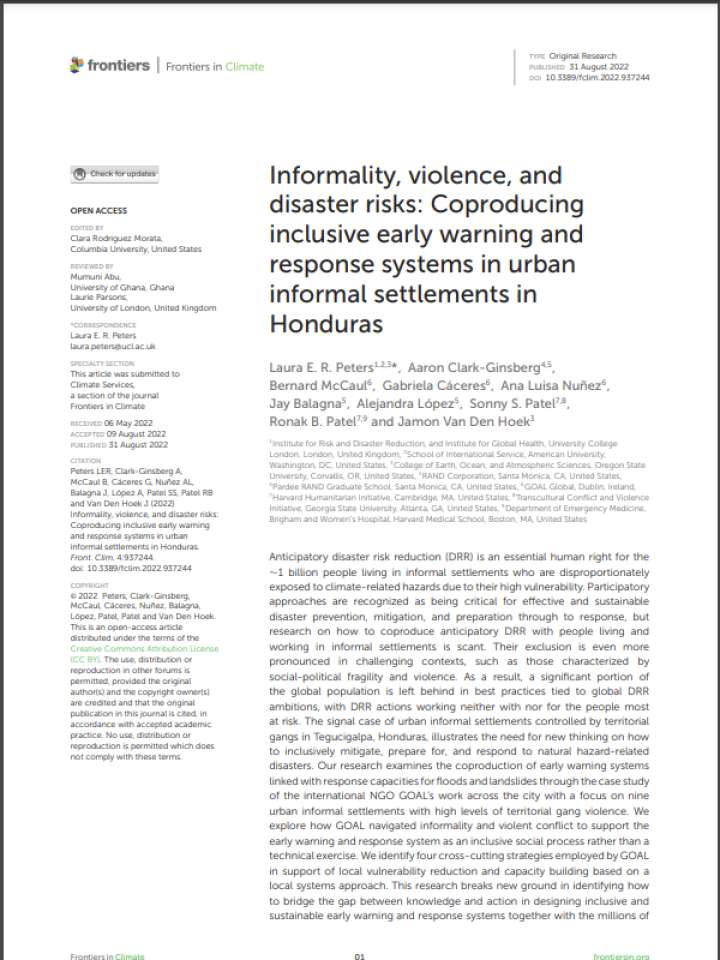Informality, violence, and disaster risks: Coproducing inclusive early warning and response systems in urban informal settlements in Honduras
This research examines the coproduction of early warning systems linked with response capacities for floods and landslides through the case study of the international NGO GOAL's work across the city with a focus on nine urban informal settlements with high levels of territorial gang violence. It explores how GOAL navigated informality and violent conflict to support the early warning and response system as an inclusive social process rather than a technical exercise. This research breaks new ground in identifying how to bridge the gap between knowledge and action in designing inclusive and sustainable early warning and response systems together with the millions of people around the world affected by the intersection of informality, violence, and disaster risks.
This study offers recommendations for policy and practice for early warning and response systems (EWRS) in urban fragile and conflict-affected contexts (FCAC):
- Donors and practitioners must find ways to foster collaboration not only in informal settlements but also across the city.
- EWRS cannot be designed and implemented outside of local participation, demonstrating the need for first-mile and bottom-up approaches to the creation of inclusive knowledge and action.
- Longer-term and more dynamic and flexible approaches to funding might be required in urban FCAC, including those that better apply multi-hazard and compound risk information.
Explore further
